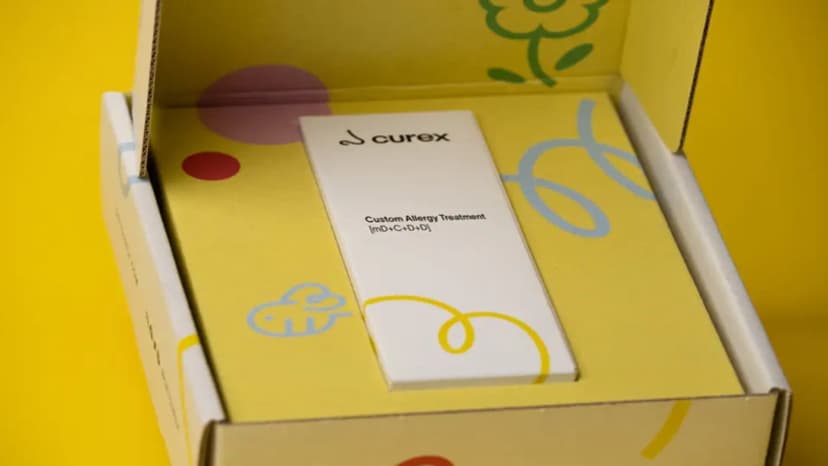Nootropics, often called smart drugs or cognitive enhancers, are substances that some people use to try to improve their brain function. This article explores what nootropics are, the different types available, and their potential benefits and risks. While some nootropics may help with mental clarity and focus, it's important to approach them with caution. Let's dive into the world of nootropics and see what they can offer for brain health.
Key Takeaways
- Nootropics are substances that may help improve brain function, but they are not miracle drugs.
- Natural options like caffeine and L-theanine are popular, but their effects can vary by person.
- Prescription nootropics are used to treat certain medical conditions, but using them without a prescription can be risky.
- Safety is a concern since many nootropics are not well-regulated, and side effects can occur.
- A healthy lifestyle, including good sleep, exercise, and a balanced diet, is crucial for brain health.
Understanding Nootropics and Their Benefits
Definition of Nootropics
Nootropics, often called cognitive enhancers, are substances that may help improve mental functions like memory, focus, and creativity. They can be natural or synthetic and are used by people looking to boost their brainpower.
Common Uses of Nootropics
People use nootropics for various reasons, including:
- Improving concentration during studying or work.
- Enhancing memory for better retention of information.
- Increasing alertness to stay awake and focused.
Potential Benefits for Brain Health
While nootropics are popular, their benefits can vary. Some potential advantages include:
- Better cognitive performance in tasks requiring mental effort.
- Reduced risk of cognitive decline as people age.
- Improved mood and motivation, which can lead to better productivity.
Nootropics may not turn you into a genius, but they can help you think more clearly and stay focused when you need it most.
Types of Nootropics
Nootropics can be categorized into three main types: natural, synthetic, and prescription. Each type has its own unique properties and potential effects on cognitive function.
Natural Nootropics
Natural nootropics are derived from plants and other natural sources. They are often considered safer and have fewer side effects. Some common examples include:
- Caffeine: Found in coffee and tea, it boosts alertness and concentration.
- L-Theanine: An amino acid in green tea that promotes relaxation without drowsiness.
- Bacopa Monnieri: A herb that may improve memory and cognitive function over time.
Synthetic Nootropics
Synthetic nootropics are man-made compounds designed to enhance cognitive abilities. They often target neurotransmitters in the brain. Examples include:
- Piracetam: One of the first nootropics, it is believed to enhance memory and learning.
- Aniracetam: Known for its potential to improve mood and reduce anxiety.
- Oxiracetam: Often used for its stimulating effects on cognition and memory.
Prescription Nootropics
Prescription nootropics are medications that require a doctor's approval. They are typically used to treat specific conditions but may also enhance cognitive function in healthy individuals. Some include:
- Modafinil: Used to treat sleep disorders, it promotes wakefulness and alertness.
- Methylphenidate: Commonly prescribed for ADHD, it can improve focus and attention.
- Amphetamines: These stimulants can enhance concentration but come with risks of side effects.
Understanding the different types of nootropics can help individuals make informed choices about their cognitive health. Always consult a healthcare professional before starting any new supplement or medication.
Popular Nootropic Substances
Caffeine and Its Effects
Caffeine is one of the most widely used nootropics. It is found in coffee, tea, and many energy drinks. Caffeine helps improve alertness and concentration by blocking adenosine, a chemical that makes you feel tired. Here are some key points about caffeine:
- Increases mental alertness
- Enhances short-term memory
- Can improve mood and energy levels
L-Theanine and Relaxation
L-Theanine is an amino acid commonly found in tea. It is known for its calming effects. When combined with caffeine, it can help reduce anxiety while maintaining focus. Some benefits include:
- Promotes relaxation without drowsiness
- Improves attention and focus when paired with caffeine
- May enhance overall cognitive performance
Creatine for Cognitive Function
Creatine is often associated with physical performance, but it also has cognitive benefits. It helps supply energy to brain cells, which can improve mental performance. Here are some advantages of creatine:
- Supports memory and learning
- May help with mental fatigue
- Can enhance overall cognitive function
Nootropics can be a helpful addition to a healthy lifestyle, but they should not replace good habits like sleep, nutrition, and exercise.
Safety and Regulation of Nootropics
FDA Guidelines and Regulations
The FDA does not regulate nootropic supplements as strictly as prescription medications. This means that many nootropics can be sold without thorough testing for safety and effectiveness. It is essential to choose reputable brands when considering these supplements.
Potential Side Effects
Using nootropics can lead to various side effects, including:
- Headaches
- Insomnia
- Anxiety
- Digestive issues
It is crucial to monitor your body’s response and consult a doctor if you experience any adverse effects.
Choosing Reputable Brands
When selecting nootropic supplements, consider the following:
- Look for third-party testing for quality assurance.
- Read customer reviews and testimonials.
- Check for transparency in ingredient sourcing.
Nootropics can be appealing for cognitive enhancement, but safety should always come first. Always consult with a healthcare professional before starting any new supplement.
Scientific Research on Nootropics
Studies on Cognitive Enhancement
Research on nootropics shows mixed results. Some studies suggest that certain nootropics can help improve focus and memory, while others find little to no effect. Many experts believe that the benefits of nootropics may be more about perception than actual improvement.
Long-Term Effects of Nootropics
The long-term effects of using nootropics are still not well understood. Some potential concerns include:
- Dependence on the substances
- Possible side effects that may develop over time
- Unclear impacts on brain health in the long run
Placebo Effect in Nootropic Use
A significant factor in the effectiveness of nootropics is the placebo effect. Many users report feeling smarter or more focused simply because they believe the nootropic will help them. This can lead to:
- Increased confidence in performance
- A belief that the nootropic is working
- Actual improvements in performance due to heightened motivation
Understanding the science behind nootropics is crucial. While some may offer benefits, it’s essential to approach them with caution and awareness of their limitations.
Ethical and Legal Considerations
Ethical Concerns
The use of nootropics raises several ethical questions. Some of the main concerns include:
- Fairness: Is it fair for some people to enhance their cognitive abilities while others do not?
- Pressure: Are students and professionals being pressured to use these substances to keep up?
- Health Risks: Are the potential health risks worth the cognitive benefits?
Legal Status of Nootropics
The legal status of nootropics varies by country. In the United States:
- Many nootropics are available over the counter.
- Some substances, like prescription stimulants, are regulated and require a doctor's prescription.
- The FDA does not regulate nootropics as strictly as prescription medications, which can lead to safety concerns.
Public Health Implications
The increasing use of nootropics can have significant public health implications:
- Potential for Abuse: Some nootropics can be addictive or lead to misuse.
- Lack of Regulation: Without strict regulations, consumers may not be aware of what they are taking.
- Long-term Effects: The long-term effects of many nootropics are still unknown, raising concerns about their safety.
The conversation around nootropics is complex, involving ethical, legal, and health considerations that society must navigate carefully.
Integrating Nootropics into a Healthy Lifestyle
Balancing Diet and Nootropics
To get the most out of nootropics, it’s important to maintain a balanced diet. Here are some tips:
- Eat a variety of foods: Include fruits, vegetables, whole grains, and lean proteins.
- Stay hydrated: Drink plenty of water throughout the day.
- Limit processed foods: Try to avoid foods high in sugar and unhealthy fats.
Exercise and Cognitive Function
Regular physical activity can enhance the effects of nootropics. Consider these points:
- Boosts blood flow: Exercise increases blood circulation, which helps deliver nutrients to the brain.
- Improves mood: Physical activity releases endorphins, which can enhance your overall mental state.
- Supports brain health: Regular exercise is linked to better memory and cognitive function.
Stress Management and Brain Health
Managing stress is crucial for brain health. Here are some effective strategies:
- Practice mindfulness: Techniques like meditation can help reduce stress.
- Get enough sleep: Aim for 7-9 hours of quality sleep each night.
- Engage in hobbies: Spend time doing things you enjoy to relax and recharge.
Remember, while nootropics can offer some benefits, they should not replace healthy lifestyle choices. Integrating nootropics into a well-rounded approach to health can lead to better cognitive function and overall well-being.
Conclusion
In summary, nootropics, often called smart drugs, are substances that some people believe can enhance brain function. While there are some promising options like caffeine and creatine, the overall evidence on their effectiveness is still unclear. Many experts suggest that instead of relying on these supplements, individuals should focus on healthy habits such as getting enough sleep, eating well, and managing stress. These lifestyle choices are proven to support brain health better than any pill. If you're considering trying nootropics, it's important to talk to a healthcare professional first, as safety and long-term effects are still being studied.
Frequently Asked Questions
What are nootropics?
Nootropics are substances that some people take to try to improve their brain functions like memory and focus. They are also called smart drugs or cognitive enhancers.
Do nootropics really work?
The effectiveness of nootropics can vary. Some people feel they help them think better, while others may not notice any difference. More research is needed to know for sure.
Are nootropics safe to use?
Not all nootropics are safe. Some can have side effects or might not be suitable for everyone. It's important to talk to a doctor before trying them.
Can I get nootropics without a prescription?
Yes, many nootropics are available without a prescription, like caffeine and certain supplements. However, some stronger ones require a doctor's prescription.
What are some common types of nootropics?
Common types include natural ones like caffeine and L-theanine, synthetic ones like racetams, and prescription drugs used for conditions like ADHD.
How should I choose a nootropic?
When choosing a nootropic, look for reputable brands, read reviews, and consult with a healthcare professional to ensure it’s safe for you.























